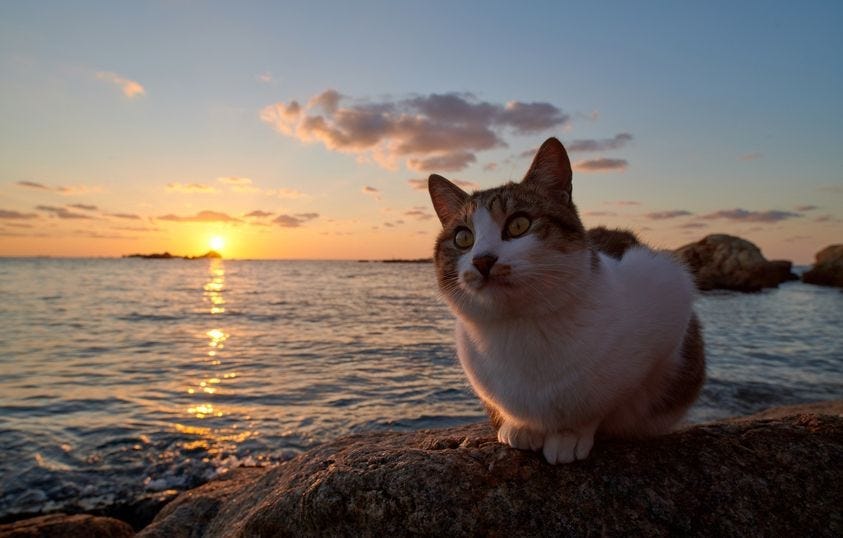Hawaii Nativists Choose Cruelty Over Compassion
Despite opposition from 23 local animal welfare groups and receiving thousands of emails requesting a “No” vote, the Hawaii County Council voted to criminalize the feeding of community cats. According to Aloha Animal Advocates, the local organization that spearheaded opposition, the bill will “thwart years of dedicated efforts to reduce and control the cat population” through sterilization and caretaking. The bill is currently on the Mayor’s desk awaiting his signature or veto.
Proponents argue that cats are “non-native” and do not deserve compassion, even though “non-native” and “invasive species” are the language of intolerance, based on an idea most of us have rejected in our treatment of our fellow human beings — that the value of a living being can be reduced to the place of ancestral origin. Indeed, people are “non-native” to Hawaii, too, and unlike cats, they cause most of the environmental harm impacting other animals: eating birds, using pesticides, and destroying wildlife habitat to build hotels, shopping malls, and golf courses. But to the nativists on the Council, the rules do not apply to them.
Moreover, biodiversity has never been higher in Hawaii. To make the opposite case, nativists simply do not count the plants and animals they dislike. And therein lies the rub: as much as it pretends to be, Invasion Biology — the underpinning of nativism — is not science, it is ideology; and a morally repugnant one at that. It is also cruel and unworkable.
In addition to depriving cats of food and care, the bill also harms people. A recent study found that approaches similar to those in the Hawaii bill lead to profound human suffering.
Study authors found that caregivers are motivated by “considerable concern regarding the health and safety of the cats,” “feel responsible for improving their health and welfare,” and “commit substantial time and finances to their needs, despite existing legal and financial difficulties.” Study authors further found that the bond between caregivers and cats was “as strong as the bonds with their own pets.” So it is not surprising that caregivers suffer when officials harm the cats. That suffering was “significant,” leading to grief, trauma, poor physical health, and long-term psychological distress, including profound guilt, loss, and inability to eat.
As such, the study’s authors called for an end to punitive and lethal methods and recommended that “authorities identify and assist caregivers…” Such an approach would see healthy cats who are social with people adopted into homes, cats who are not social with people neutered and allowed to live out their lives outside of homes, and caregivers “afforded the physical and psychological benefits of maintaining a bond and mutually beneficial relationship with the cats.”
It would also protect birds by reducing the number of cats, cat home ranges (and therefore, the chance of contact with birds and other wildlife), and hunting. It would spare cat suffering, caregiver suffering, and teach children how to solve challenges without resorting to the infliction of harm. Doing so would be an embrace of the “aloha” spirit. In the Hawaiian language, “aloha” means love, affection, compassion, mercy, sympathy, pity, kindness, and grace.
But nativists on the Island will not allow it. And they will not allow it because they trade in violence against animals and people, not love, compassion, mercy, or grace —or, for that matter, real environmentalism. As Carl Jung, the father of analytical psychology, argued, if you want to understand someone’s motivation, look at the consequences of their actions. If this is true, the goal of nativists is to harm cats and those who love them. Indeed, while the bill prohibits compassionate care, it explicitly allows for their trapping and removal, and thus killing.
For further information, read “Conservationists” don’t want to save birds; they want to kill cats by clicking here.


